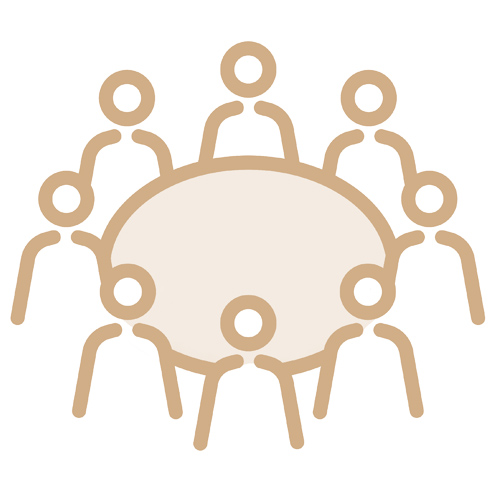Holding expertise in equal measure means recognizing that expertise can come in many forms — from academic research as well as from years of lived experience.
The best idea might come from someone who has just joined the group based on their experience in a previous role. It might get expressed in a “gut feel” way that needs to be filled out as a group. These ideas can only come forward when there is strong mutual respect, curiosity, and inquiry. (For a great example, read about “Merging Knowledge” at ATD FourthWorld.)
What’s wrong with expertise?
Nothing! We all rely on and benefit greatly from the fact that some people devote their careers to developing a deep understanding of a problem or solution. From the perspective of a team or network of actors trying to address a complex problem in a constantly evolving environment, the question is this: When and how do we engage expertise? When does that expertise move us forward to deeper understanding and stronger results? When and how does it get in the way of learning and adaptation?
You can think of complex social change as being like a team sport. You can benefit from having a brilliant coach or star quarterback or team captain, but you can’t win a game by just following their directions. It requires the perspective and agency of all of the players on the field to win a game. Each player needs to have the goal in mind and the freedom to adjust to what they see in front of them, guided not just by individual expertise, but by the wisdom that comes from the whole team’s collective experience.

What does it look like to “Hold Expertise in Equal Measure” in practice?
The presence or absence of ‘Expertise in Equal Measure’ in an initiative or project can manifest itself in a number of ways. Here is what we have observed:
- If it’s present: There is a sense of humility and curiosity in a group’s thinking. All ideas are welcomed and explored with curiosity and respect. All ideas, regardless of source, are interrogated for their fit with the current goals and situation. People feel free to step in and start experimenting. Deeper understanding of different perspectives leads to greater trust in the collective intelligence of the whole group. Collaboration becomes interesting and fun. Out-of-the-box solutions emerge.
- If it’s missing: Participants may inappropriately defer to expert-driven solutions because of the perceived credibility of their source rather than their fit to the problem at hand. This can dampen learning and innovative thinking. Metrics for success and underlying assumptions embedded in expert solutions may replace more context-appropriate metrics and assumptions. The more complicated the solution, the more it may be perceived as being “right.” People may be hesitant to challenge expertise or offer alternative perspectives or ideas. People may delay taking action because they “don’t know enough.”
How Emergent Learning tools support this principle
The tools and practices of Emergent Learning work together to support holding expertise in equal measure:
- Emergent Learning Questions encourage two-way learning dialogues more than one-way ‘transfer of knowledge.’ They encourage groups to make visible and question underlying assumptions.
- Emergent Learning Tables are designed explicitly to invite all sources of insight — from research or evaluation data, from expert recommendations, and from personal experience — to be brought ‘to the table’ to reflect on together. They can be used to make meaning of external inputs (e.g., evaluation data) by comparing them to lived experience and then thinking deliberately how to take them forward into the work ahead.
- Action Hypotheses encourage teams to remember that, in complex and dynamic environments, no one solution is “right” for every situation. It reminds us that any strategy or approach or recommendation is a hypothesis to be tested and refined to meet our changing situations.
Holding expertise in equal measure helps us bring all of the wisdom in the room to the table; it helps us develop our best possible thinking about how to tackle the complex challenges we face in achieving social change.
